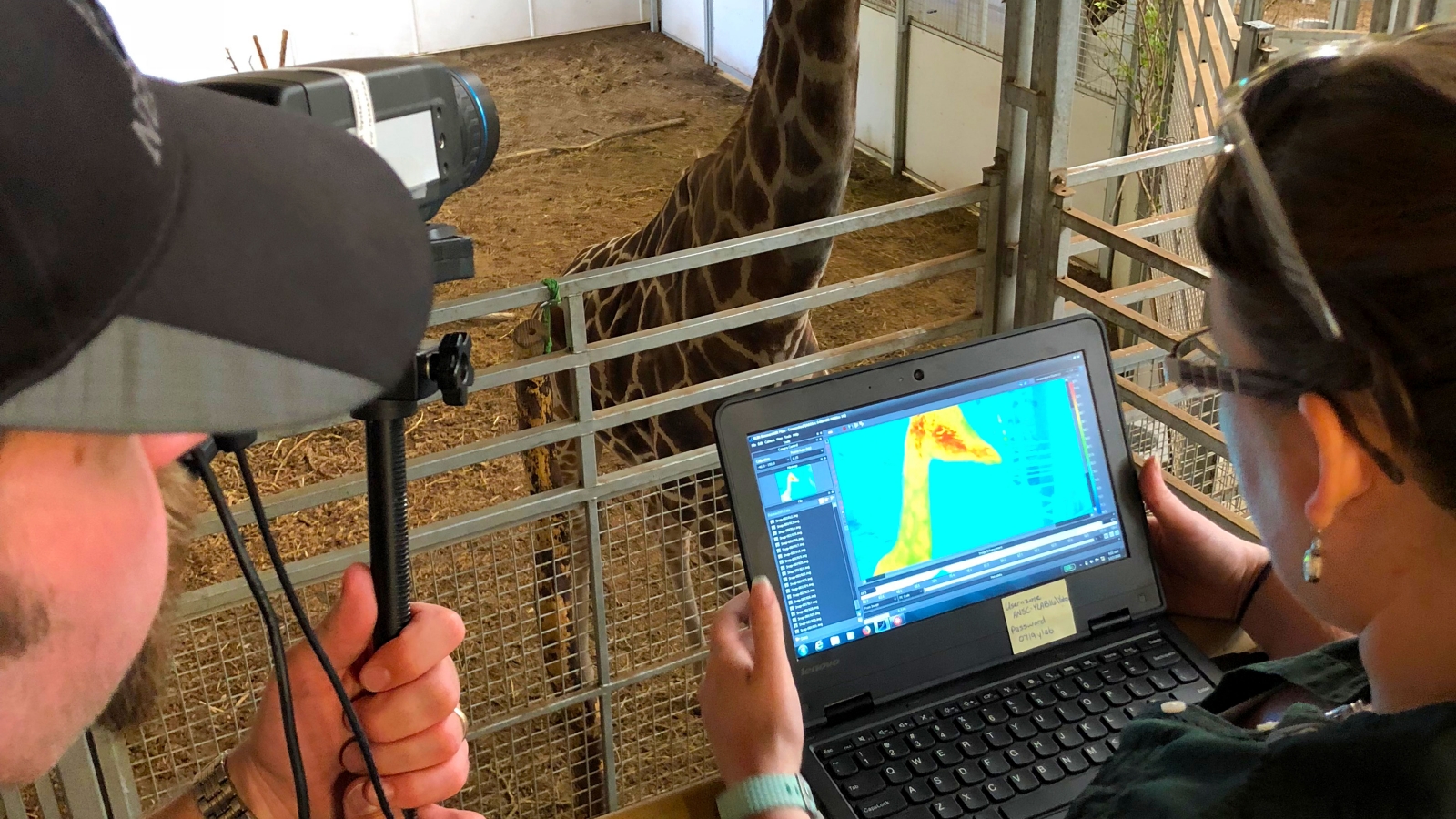header
The overarching objective for students who matriculate through this specialization is to learn the fundamental function of physiological systems to achieve optimal animal growth and reproductive longevity. The faculty represent a diverse group of scientists that conduct research at the system-wide whole animal level to functions at the molecular and cellular level.
Program Features
Gain Expertise in Reproductive and Stress Biology
Students use whole animal trials, in vivo treatments, and ex vivo and in vitro experiments in order to discern how the functions of physiological systems, tissues and cells are altered by nutrition, chronic stress, and disease states.
Study Applied Reproductive Management
From pre-conception through slaughter, study all stages of heifer development systems, fetal programming, synchronization systems, and beef systems management.
Notable Courses
Elements of Biochemistry (BIOC 801)
Structure and function of proteins, carbohydrates, lipids and nucleic acids; enzymes; principal metabolic pathways; and biochemical expression of genetic information.
Statistical Methods in Research: Non-Calculus (STAT 801A)
Statistical concepts and statistical methodology useful in descriptive, experimental, and analytical study of biological and other natural phenomena. Practical application of statistics rather than on statistical theory.
New Techniques in Reproductive Biology (ASCI 841)
Mammalian early embryonic development. Basic aspects of embryology and development biology. Modern technologies in animal reproductive biology, in vitro maturation and fertilization, embryo transfer, cloning, assisted reproductive technologies, transgenic animals, and embryonic stem cells.
Endocrinology (ASCI 842)
Mammalian endocrine glands from the standpoint of their structure, their physiological function in relation to the organism, the chemical nature and mechanisms of action of their secretory products, and the nature of anomalies manifested with their dysfunction.
Physiology of Animal Cells and Tissues (ASCI 843)
Molecular, cellular, and tissue dependent functions of neurons, skeletal and smooth muscle, vasculature, and immune cells. Cellular regulation of important physiological processes including blood flow, gas exchange, inorganic solute homeostasis, acid-base balance, water balance, appetite control, and thermal regulation will also be studied. Understand cellular and molecular processes that ensure homeostasis and promote integration of physiological systems.
Contemporary Topics in Reproductive Biology (ASCI 896)
Multi-institutional graduate course in reproductive biology that discusses issues in reproductive biology using current research literature. Existing and emerging areas of reproductive biology covered include neuroendocrine function, gametogenesis, ovarian physiology, embryogenesis, uterine function, placental biology, fetal development, infertility, and reproductive immunity.
Other Graduate Courses
These are just some of the courses you will take in our graduate program. Click below to learn more about our other animal science graduate courses.
Explore CoursesAnimal Science Graduate Programs
- Typically completed in 2 years
- 30 credit hours required
(including 6-10 research thesis hours)
- Typically completed in 4-5 years after the B.S. degree or 2-3 years beyond the M.S. degree.
- One half (90 credit hours beyond the B.S. degree) must be completed at the University of Nebraska-Lincoln.
- A professional degree in agricultural science, community development and natural resources at the master’s level
- Flexibility that allows you to design an area of study that addresses your educational goals
- Online courses allowing you to earn the degree remotely
- Animal Science
- Beef Cattle Nutrition
- Extension Education Experience
- Teaching Engagement Experience
Huskers Do Big Things
Program Alumni
- Rebecca Bott-Knutson, South Dakota State University
- Renee McFee , UNL School of Veterinary Medicine and Biomedical Sciences
- Amy Desaulniers, UNL School of Veterinary Medicine and Biomedical Sciences
- Caitlin Cadaret, Colorado State University
- Katie Bidne, Inotiv
Our Research
The general areas of research in physiology include factors affecting gonadal development (ovarian and testis) and sex differentiation, factors affecting embryo development and reproductive hormone research, and genes regulating egg and sperm function.
Explore ResearchOur Faculty
Prior to applying, please contact a specific animal science faculty member in your area of interest. Click below to meet some of our faculty in this specialization.
Meet the Specialization FacultyQuestions? We're Here to Help
If you have questions about any of our specializations within the Animal Science graduate program, please contact a member of our graduate student services team below.


